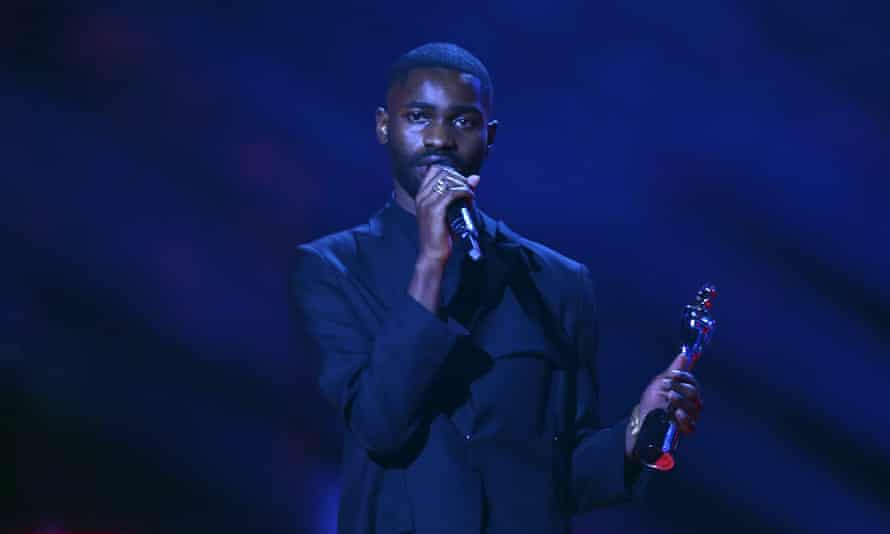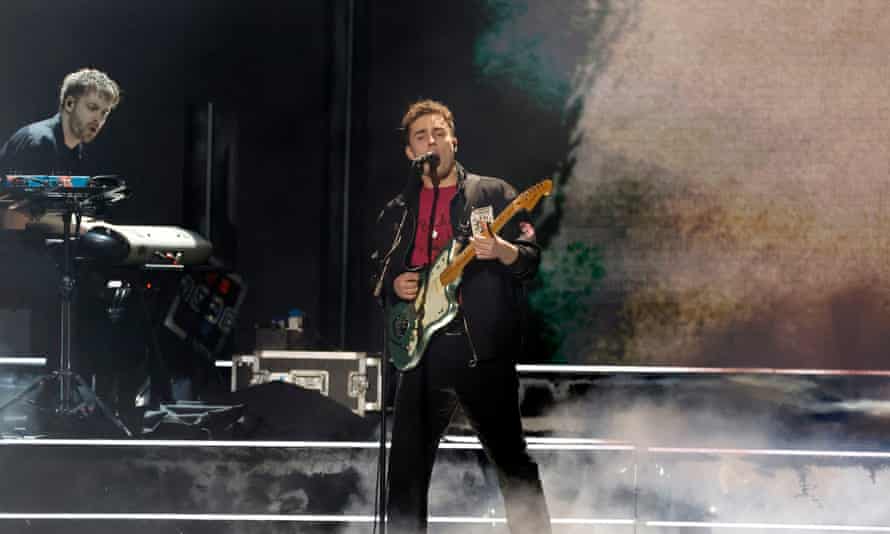Shared from Culture | The Guardian
Adele was the runaway winner at this year’s female-dominated Brit awards, taking home the prizes for artist of the year, album of the year for her fourth record, 30, and British song of the year for its lead single, Easy on Me. “I can’t believe that a piano ballad won against that many bangers,” she said when collecting the single award, her first prize of the night.
It brings her Brit awards haul to 12, and reflects her predictable yet still staggering commercial successes in recent months. Her album 30 became the biggest-seller of 2021 after just six weeks on sale, and was heralded with reviving the CD as well as causing backlogs in vinyl production plants.
She dedicated the award for album of the year to her son, Angelo, and her ex-husband, Simon Konecki. “This album was all of our journey, not just mine, and I’m very proud of myself for sticking to my guns and putting out an album that was so personal to me – ’cause not many people do that any more. My son has been so kind and gracious and patient with me over the years.”
Adele’s wins presumably mark a high point in a bleak few weeks that saw her postpone a much-anticipated Las Vegas residency. However, she was kept from a potential 13th Brit award – which would have equalled Robbie Williams’s record as the most celebrated artist in history – by Dua Lipa, who won the fan-voted prize for best pop/R&B act , Lipa’s sixth Brit. Usually a key fixture of previous Brits ceremonies, Lipa sent a remote acceptance speech from tour rehearsals in Miami.
Given the political statements made by artists in recent Brits awards ceremonies, this year’s was curiously devoid of provocation. “Boris, I know you’re watching,” said host Mo Gilligan in the night’s sole reference to the government’s current predicament. “I know you love a party. Come down, man.”
Ed Sheeran won none of his four categories, but he was garlanded with a new award, songwriter of the year, voted for by an independent panel, and performed twice. In 2021, in addition to writing his fifth studio album, =, he co-wrote songs for artists including Rita Ora, Maisie Peters, BTS, Anne-Marie and JLS, in addition to collaborations with Elton John, LadBaby, Nigerian singer Fireboy DML, Ghetts and Taylor Swift.
In the ceremony’s first year without gendered categories, women and female-fronted acts dominated proceedings, winning 10 out of 15 prizes – defying concerns expressed by culture secretary Nadine Dorries that women would be disfranchised by the BPI’s “sad decision”.
Collecting the award for best artist, Adele said: “I understand why they changed the name of this award [from best female/male artist], but I really love being a woman, I really love being a female artist.”
The change to the gendered awards came after criticism of the 2021 ceremony by non-binary singer Sam Smith, whose gender identity meant they couldn’t be nominated in the male or female artist awards. They said: “I look forward to a time where awards shows can be reflective of the society we live in.”
Beyond Adele, the British categories were completed by two first-time winners. London band Wolf Alice beat Coldplay among others to best group after releasing their acclaimed third album Blue Weekend last year, and independent London rapper Little Simz, AKA Simbiatu Ajikawo, was named best new artist – despite releasing her debut album more than six years ago.
“Look at what you done, Mum,” Simz said, as she brought her mum up on stage to help her receive the award. “I am living proof that if you work hard at some thing, no matter your background, your race, you can be something extraordinary. This is for all the kids, keep dreaming, keep pushing. I am you, you are me, lessons.”
Later in the ceremony, Simz received expletive-laden plaudits from Adele, collecting the award for best artist, which were censored by ITV.
Genre categories replaced the old gender categories, with the winners voted for by fans via TikTok – one of many new Brits initiatives to engage younger music fans who may have little affinity with the stalwart ceremony.
In addition to Dua Lipa winning best pop/R&B act, North Shields songwriter Sam Fender took home best rock/alternative act after winning the critics’ choice award (since renamed rising star) in 2019. British singer Becky Hill won her first Brit award, for best dance act, and best hip-hop/grime/rap act went to London rapper Dave, who previously won album of the year for his debut, Psychodrama, in 2020. He dedicated his award to “the rappers that have suffered for years and years, and broken down so many barriers in this industry that I’m in right now”, and hailed his Brits peers Little Simz and Ghetts.
In the international categories, Billie Eilish continued her winning streak, taking home best artist having previously been named best international female solo artist in 2020 and 2021. “I feel so lucky to be awarded this again, I don’t feel deserving,” she said in a video message.

Breakout star Olivia Rodrigo won song of the year for the pop-punk anthem Good 4 U, and newcomers – at least in name – Silk Sonic, AKA Brits old hand Bruno Mars and rapper Anderson .Paak were named best group, beating a diverse category that included Abba, Italian Eurovision winners Måneskin, K-pop megastars BTS and US rock group the War on Drugs.
Prior to the ceremony, UK newcomer Holly Humberstone was announced as the recipient of the rising star award – and made her live Brits debut performing her recent single London Is Lonely at the ceremony.
Inflo won producer of the year for his work with Adele, Little Simz, and his own mysterious, critically acclaimed collective Sault alongside his partner Cleo Sol, marking the first time a non-white artist has won the award since the inception of the Brits in 1977.
“I feel honoured to be a part of change,” Inflo, whose real name is Dean Josiah Cover, said prior to the ceremony. “All the Black producers before me, I’m in awe and have studied you. I am you. Thank you for paving the way and for your integral contribution to British music.”
Adele paid tribute to Inflo in her album of the year acceptance speech, calling him “integral” to it. “He really changed my life, not just with my music, but with me as well. Flo, I love you.”
Those with multiple nominations who went home empty-handed include UK drill rapper Central Cee and veteran dance producer David Guetta. Little Mix, who are set to go on hiatus following their 2022 tour, also missed out on what might be their final chance at a Brit award, for best British group. In 2021, they became the first all-female act in Brits history to win the best group category.
The awards are primarily voted for by the Brits Academy, comprising musicians alongside music industry and media figures. Nominees in the two song of the year categories are determined by UK chart performance, but the winner is picked by the Academy.
2022 Brit award winners
Artist of the year Adele
British group Wolf Alice
Song of the year Adele – Easy on Me
New artist Little Simz
Album of the year Adele – 30

Rock/alternative act Sam Fender
Hip-hop/grime/rap act Dave
Dance act Becky Hill
Pop/R&B Dua Lipa
International artist Billie Eilish
International group Silk Sonic
International song Olivia Rodrigo – Good 4 U
Rising star Holly Humberstone
Producer Inflo
Songwriter of the year Ed Sheeran
Images and Article from Culture | The Guardian

